UPF receives nearly two million euros from Arcadia Fund to lead a project to preserve the pre-Columbian archaeological heritage of South America
UPF receives nearly two million euros from Arcadia Fund to lead a project to preserve the pre-Columbian archaeological heritage of South America
This is the largest donation by a private foundation to a university in southern Europe for an archaeological project, which will be conducted under the title Mapping the Archaeological Pre-Columbian Heritage in South America. MAPHSA, which will create a geospatial, sustainable and open-access database, will resort to archival work, remote sensing and field studies to identify pre-Columbian heritage, assess its preservation and automatically detect threatened archaeological sites.
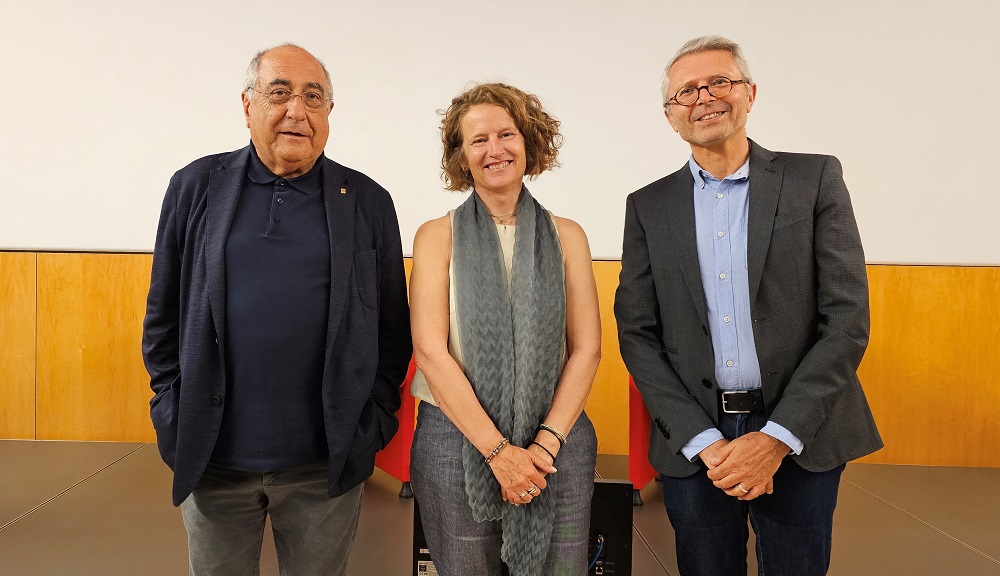
Pompeu Fabra University, through the Culture, Archaeology and Socio-Ecological Dynamics Research Group (CaSEs) of the Department of Humanities, is to lead the research project Mapping the Archaeological Pre-Columbian Heritage in South America (MAPHSA), which will develop the first integrated database for archaeological heritage in South America.
Based on the information obtained through archival work and field studies, the mapping proposed by the project will allow systematically and comprehensively identifying pre-Columbian archaeological heritage, evaluate its preservation and develop state-of-the-art methods for the automatic detection of threatened archaeological sites.
This pioneering research, a paradigmatic showcase of the digital humanities and the first example of open access big data on the continent, will be made possible thanks to the donation of close to 1.9 million euros by Arcadia Fund, the largest by a private foundation to a university in southern Europe for an archaeological project.
To publicize the donation, at noon on 7 June, the multipurpose room of the Mercè Rodoreda building on the UPF Ciutadella campus hosted a presentation, which was attended by Joaquim Nadal, Catalan minister of Research and Universities.
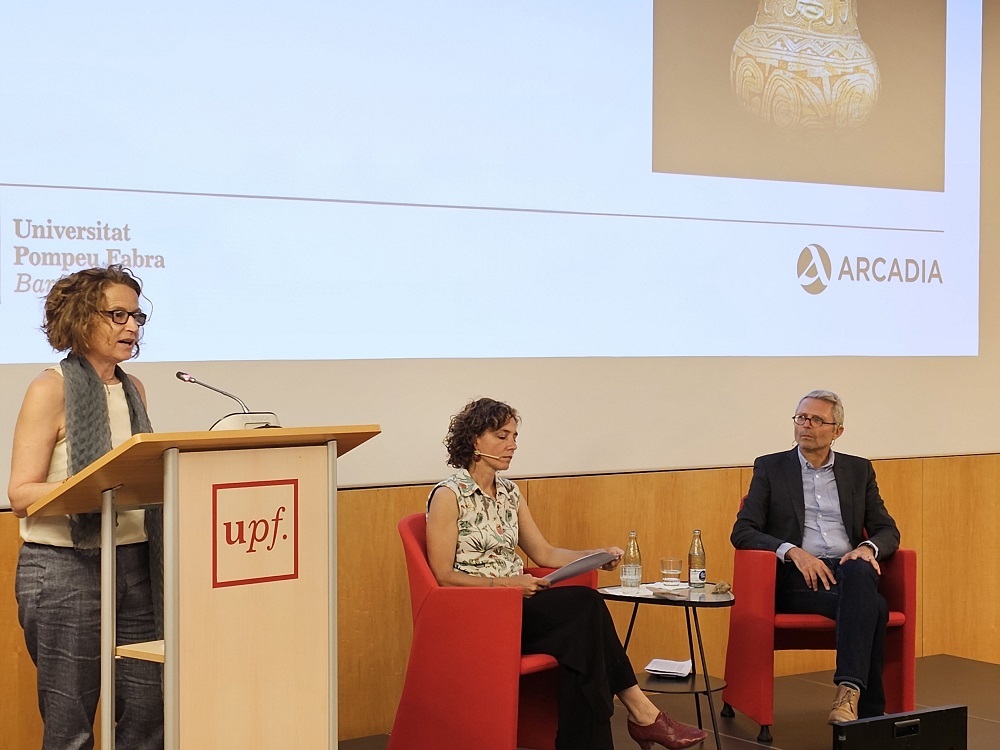
The minister was accompanied by Laia de Nadal, UPF rector, and Marco Madella, director of the MAPHSA project, ICREA research professor at the UPF Department of Humanities and director of the CaSEs research group who outlined the project in an interview held with Cristina Sáez, a science journalist and UPF alumni. Also, a video was screened of a speech by Arthur Dudney, director of Cultural Programmes at Arcadia, to round off the proceedings.
Laia de Nadal: “Projects like this one provide tangible answers to how digital technologies can be used in a social sense, with a commitment to the past, present and future of people and the planet, values that are dear to the UPF Planetary Wellbeing project and Arcadia Fund”
Laia de Nadal highlighted the fact that it is a project that “is neither technological nor biomedical, but is linked to the social sciences and the humanities”, and thanked Arcadia Fund deeply for “choosing UPF and the CaSEs Research Group to make such a large donation to material and also symbolic issues”. The rector highlighted the use of information and communication technologies (ICT) in the project, “not only as a work instrument or tool that facilitates and speeds up the work of archaeologists, but because they become an essential ally to generate an unprecedented and complete knowledge of the pre-Columbian archaeological legacy”.
Laia de Nadal also stressed that the MAPHSA project is committed to historical heritage, local communities and the environmental sustainability of the region of investigation, as it aims to provide knowledge and tools to these populations and their local authorities to protect and preserve their legacy: “Projects like this one provide tangible answers to how digital technologies can be used in a social sense, with a commitment to the past, present and future of people and the planet, values that are dear to the UPF Planetary Wellbeing project and Arcadia Fund”.
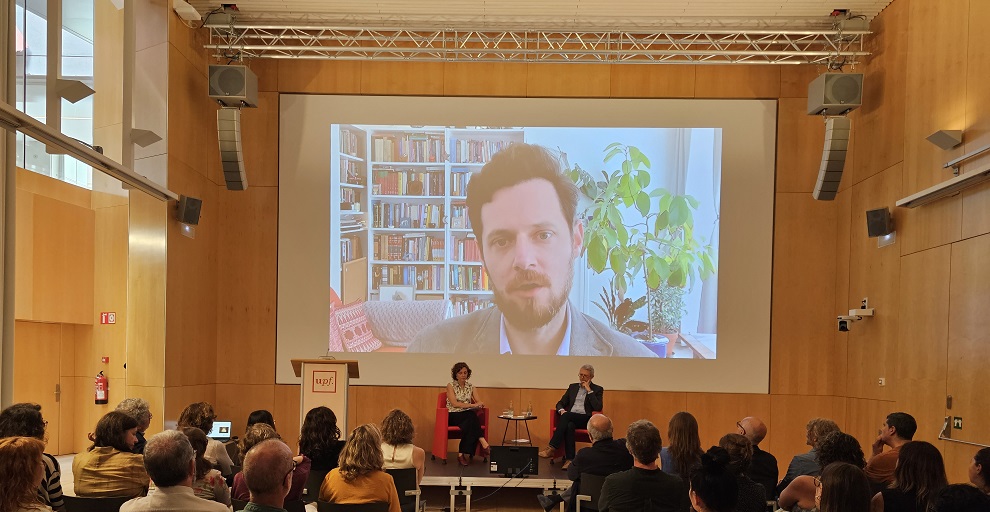
Next, the video was screened with the intervention by Arthur Dudney, director of Cultural Programmes at Arcadia, a family charity founded in 2002 (since then it has granted over a billion dollars to organizations around the world). Based in London, it was founded by Lisbet Rausing and Peter Baldwin with the aim of working to protect cultural heritage and promote open access to knowledge.
Arthur Dudney stressed that the Foundation’s grants promote the digital registry of endangered cultural heritage: “Our goal is to support projects in which the need for funding is greater, and in which the cultural heritage is seriously endangered for whichever reason”. “Cultural knowledge is rapidly being lost due to globalization and its tendency to homogenize culture”.
Arthur Dudney: “Cultural knowledge is rapidly being lost due to globalization and its tendency to homogenize culture”
According to Arcadia’s director of Cultural Programmes, “we require recipients of our grants to make the digital databases produced available online, free of charge, so that the knowledge can be shared. Maintaining this accessibility to heritage data in the long term is an important commitment on the part of our beneficiaries”. Regarding MAPHSA, he pointed out “we are excited about the project because it is the first large-scale cultural work we have funded in Latin America”. He also noted that it fosters important connections between European and Latin American partners at different levels, as well as giving voice to indigenous communities.
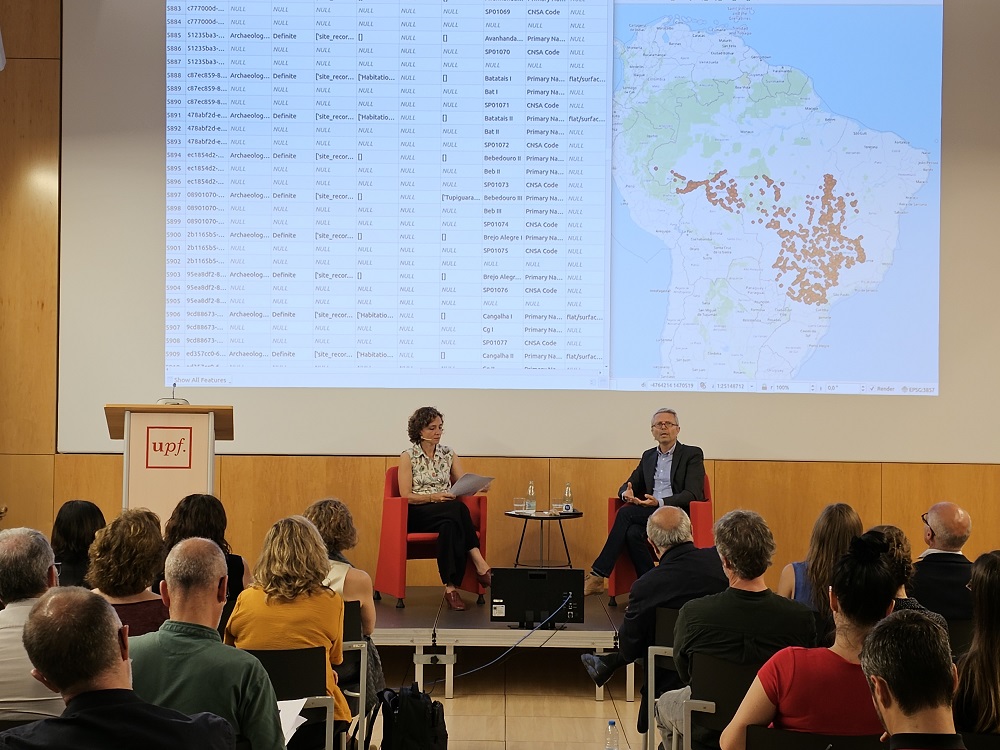
The second part of the presentation consisted of an interview with Marco Madella, director of the MAPHSA project, conducted by Cristina Sáez, a science journalist and UPF alumni. The ICREA research professor at the UPF Department of Humanities, who earned his PhD in Archaeology from the University of Cambridge, emphasized different aspects related to this research, which goes along the lines of “avoiding the destruction of heritage without knowing that it exists, which from the archaeologist’s point of view is a tragedy”.
Marco Madella: “Archaeological projects have immense value because they provide us with information about our roots and how we got here”
The director of MAPSHA stressed that “scientific knowledge implies that we can do things better, better policies, and have better information available, in order to solve the problems we have”. In addition, for him, archaeological projects have a very strong social and ethical value: “This donation to protect heritage is harder to justify than a biomedical project, for example, but archaeological projects really have immense value because they provide us with information about our roots and how we got here”.
Joaquim Nadal, Catalan minister of Research and Universities, gave the last speech of the event. “This donation to an archaeological project should not be exceptional, but it is, and this proves its uniqueness. The value of this investment cannot be disputed either: all the elements of a patrimonial nature help to understand quite a few things”. The minister added that “all too often we look at ourselves, and this project has the advantage of looking far beyond, on the other side of the Atlantic, and it is an example of valuing the universal sense of knowledge”. He stressed that it ties in with the new Law on Science, which is “committed to open science, not restricted to the desire to appropriate knowledge”.
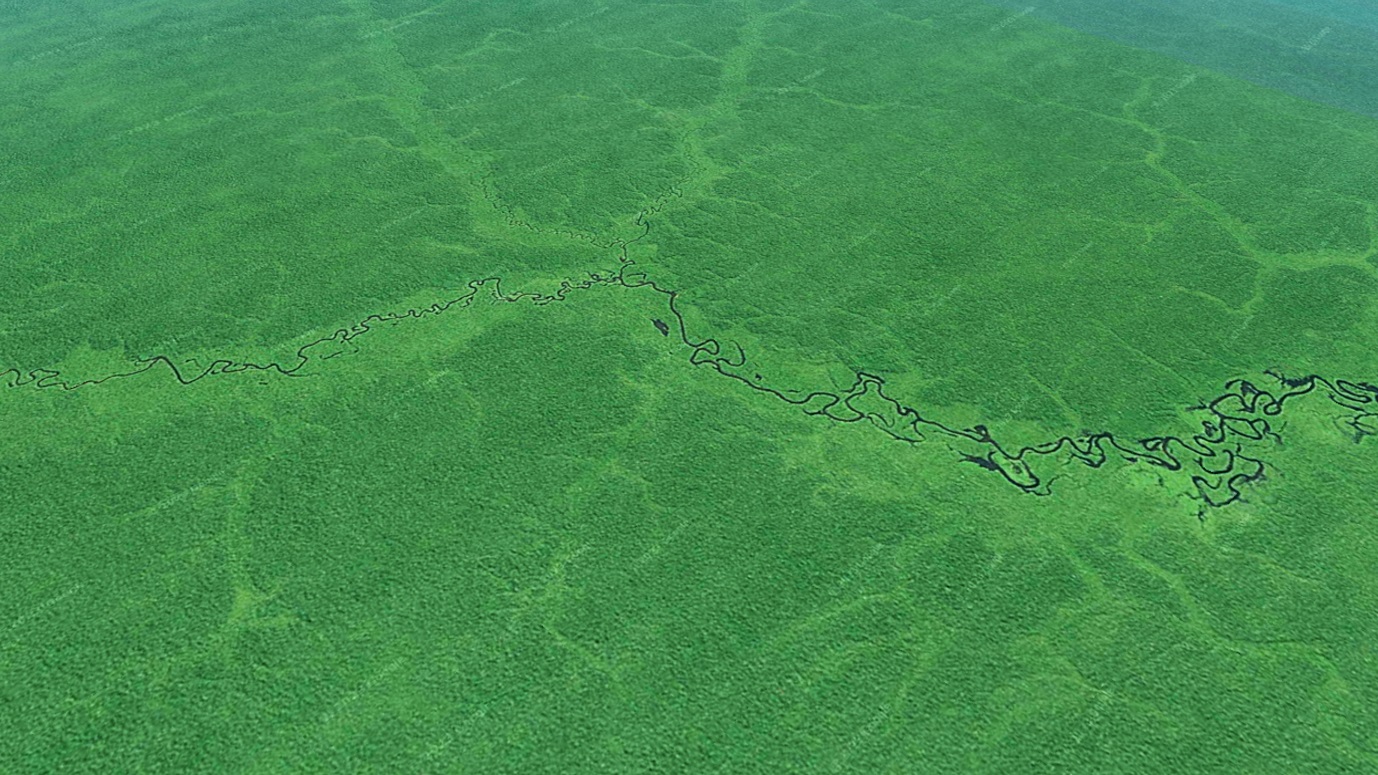
Threatened archaeological heritage, which MAPSHA aims to preserve
MAPSHA, which will be carried out over 36 months (between 1 January 2023 and 31 December 2025), is endowed by Arcadia Fund with a total of 1,908,098 euros. It will initially focus on two South American countries, Brazil and Colombia, and will document the heritage of nearly 3.5 million km2 of forest and savanna (approximately 20% of South American territory), which face the greatest threats to archaeological sites and the environment.
South America’s archaeological heritage is facing increasing threats, due to the expansion of agricultural activities such as livestock farming; industrial-scale soybean cultivation; infrastructural expansion; the illegal extraction of timber from major forests; and the ongoing fire emergency that is hitting various parts of the continent hard. This threat to the environment goes hand in hand with damage to archaeological heritage, with biomes such as the Amazon (the southern periphery, especially), the Cerrado (the extensive forested savanna that covers two million square kilometres in central Brazil), the montane forest in Sierra Nevada de Santa Marta and the eastern flank of the Eastern Ranges in Colombia.
The project will prioritize areas with little information and a high risk of destruction of the heritage located outside protected archaeological sites
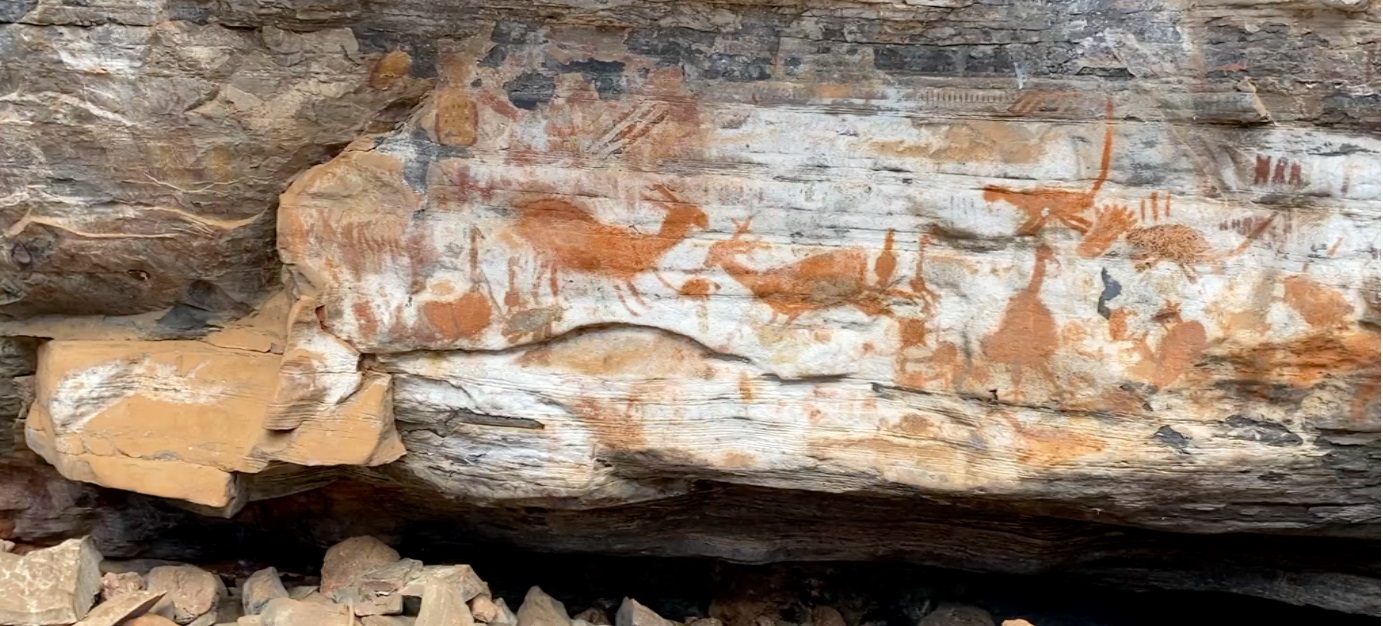
These threats lead to a significant loss of heritage, including archaeological sites that have never been properly recorded. Documenting these pre-Columbian sites, in addition to finding new sites and increasing knowledge about their distribution and significance, is essential to preserve cultural heritage and change attitudes to prevent their destruction. All of these are the core goals of Arcadia Fund, and they have also guided MAPSHA.
The project will prioritize areas with little information and with a high risk of the destruction of heritage located outside protected archaeological areas: in Brazil, it will focus on the south-western and southern areas of the Amazon and the Cerrado biome, and in Colombia, the Caribbean region, the Eastern Ranges and the Colombian Massif, and the Eastern Lowlands. For example, in the area of the Congo Basin in the Sierra Nevada de Santa Marta in Colombia, there are more than 820 pre-Columbian archaeological elements, with terraces, retaining walls, paths, stairs, tombs, etc., and with forest-covered structures that have not been duly recorded.
What actions will MAPHSA carry out and what type of database will it create?
MAPHSA will carry out different actions in the chosen areas of Brazil and Colombia: digitization and integration of existing data on the location of the site and research resources (inherited data); application of remote sensing (with remote sensors and LiDAR technology, based on laser) to identify areas with preserved sites and areas of high archaeological probability, and the development and application of machine learning models to detect new archaeological sites in open vegetation, and especially, under forest cover.
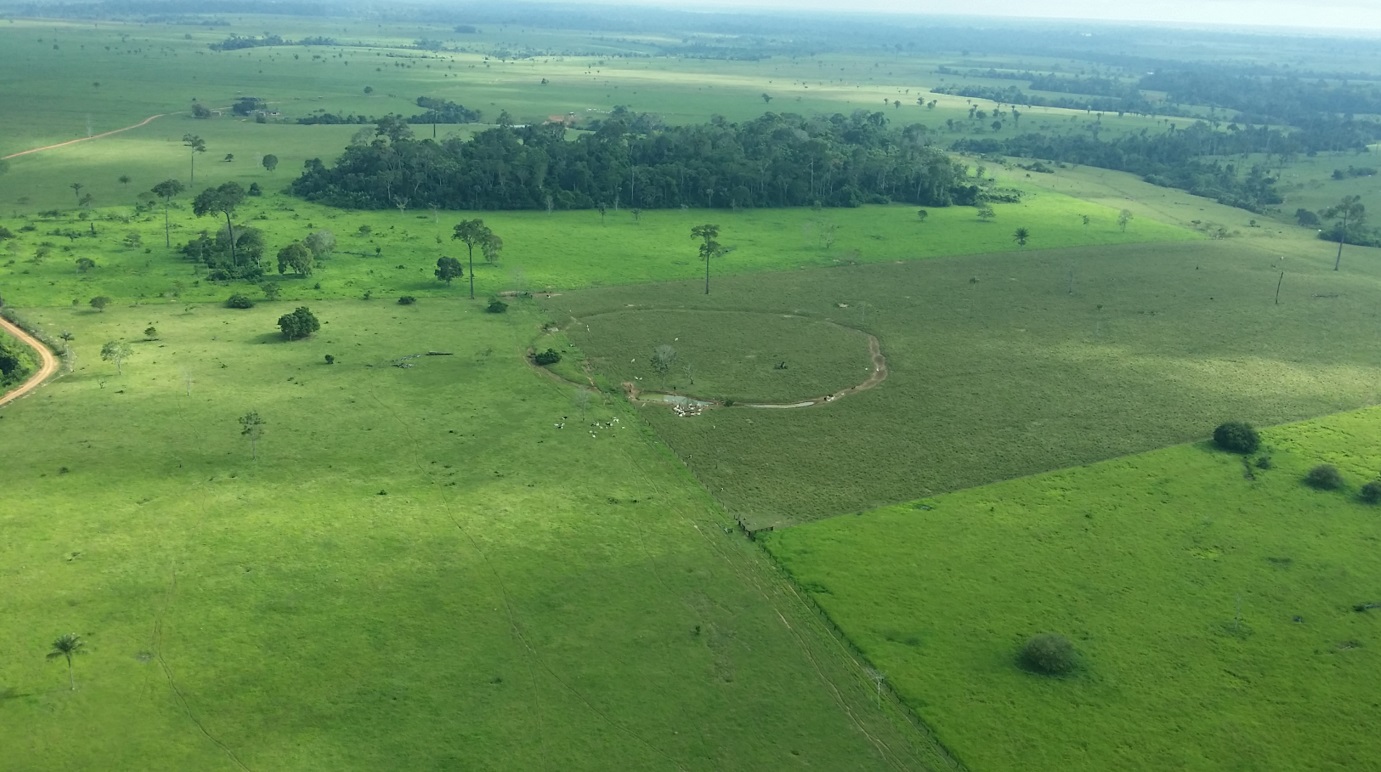
On the basis of the previous points, protocols will be developed for the rapid digital evaluation and monitoring of the preservation of the archaeological sites. There will also be an inspection of the selected areas for on-site verification of remotely identified sites and possible sites detected by machine learning, as well as an assessment of the preservation of known sites.
Both the inherited data and the newly obtained information will be integrated into a geospatial, sustainable, open access digital database, with appropriate security measures, following the FAIR (Findable, Accessible, Interoperable and Reusable) data exchange philosophy, to provide the research community, heritage agencies and the interested public with the first data repository and mapping resources initially for Brazil and Colombia.
Participating institutions and project team
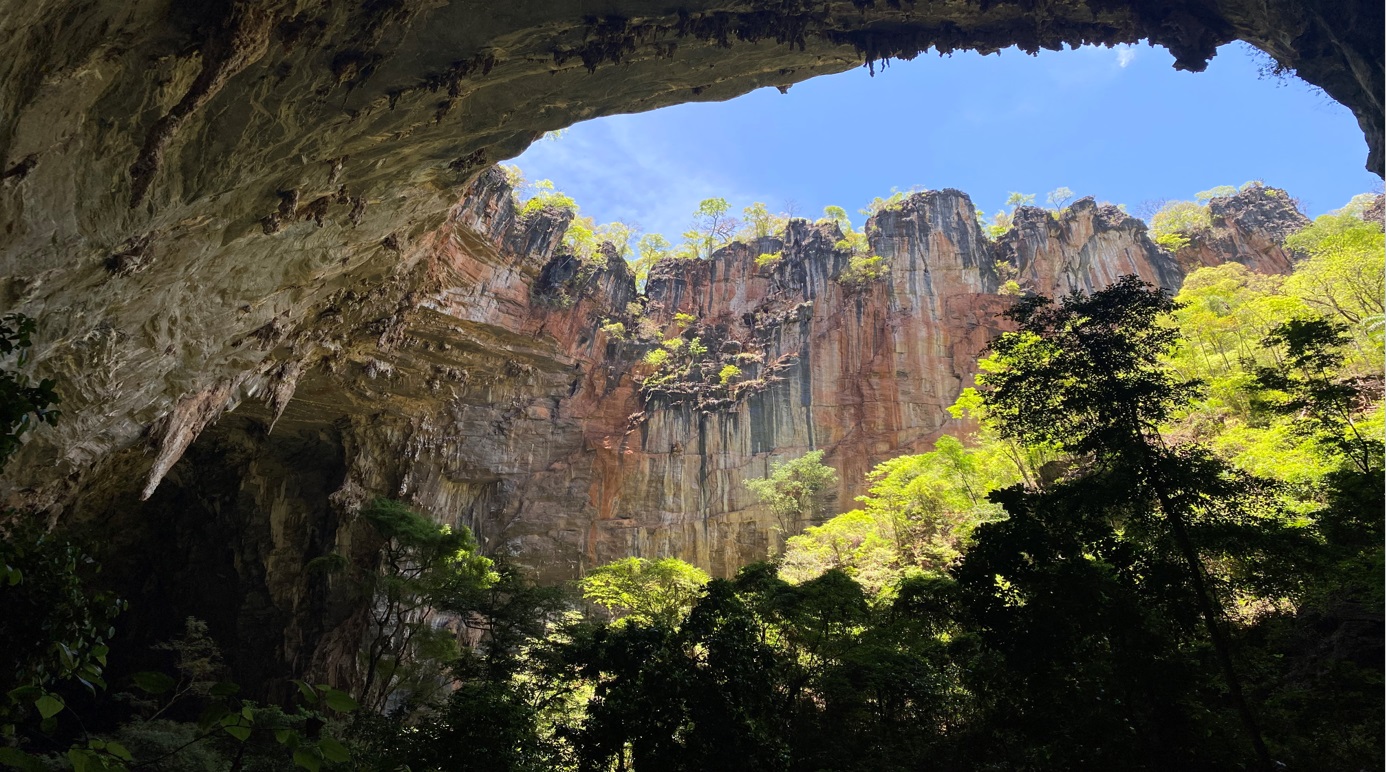 MAPHSA will be based at the new Digital Humanities Centre of the UPF Department of Humanities, which will act as coordinating body. The project partners are: Leiden Institute of Advanced Computing of the University of Leiden (Netherlands); the Catalan Institute of Classical Archaeology (ICAC); the Museum of Archaeology and Ethnology (MAE) of the University of São Paulo in Brazil; the National Institute for Space Research (INPE) of Brazil; and the University of Magdalena (Santa Marta, Colombia). In addition, the project will establish collaborations with the National Institute of Historical and Artistic Heritage (IPHAN), Brazil; the National Centre of Archaeology (CNA), Brazil, and finally, the Colombian Institute of Anthropology and History (ICANH), in Colombia.
MAPHSA will be based at the new Digital Humanities Centre of the UPF Department of Humanities, which will act as coordinating body. The project partners are: Leiden Institute of Advanced Computing of the University of Leiden (Netherlands); the Catalan Institute of Classical Archaeology (ICAC); the Museum of Archaeology and Ethnology (MAE) of the University of São Paulo in Brazil; the National Institute for Space Research (INPE) of Brazil; and the University of Magdalena (Santa Marta, Colombia). In addition, the project will establish collaborations with the National Institute of Historical and Artistic Heritage (IPHAN), Brazil; the National Centre of Archaeology (CNA), Brazil, and finally, the Colombian Institute of Anthropology and History (ICANH), in Colombia.
The research project team will be led by Marco Madella, an ICREA research professor at the UPF Department of Humanities and director of the CaSEs Research Group; Sebastián Fajardo Bernal, expert archaeologist in the analysis of long-term relationships between collective action, community formation, settlement patterns and landscape; Eduardo Goes Neves, a professor of Archaeology at the University of São Paulo in Brazil; André Menezes Strauss, an archaeologist and a geologist, professor at the University of São Paulo in Brazil, where he coordinates the Laboratory of Archaeology and Environmental Anthropology.
The team is completed by Luiz Eduardo Oliveira e Cruz de Aragão, head of the TREES laboratory (Tropical Ecosystems and Environmental Sciences Lab) of the National Institute for Space Research (INPE), Brazil; Héctor Orengo, ICREA research professor at the Catalan Institute of Classical Archaeology (ICAC); Juan Carlos Vargas Ruiz, a researcher at the Department of Archaeology of the University of Magdalena in Colombia, and Jonás Gregorio de Souza, a PhD in Archaeology from the University of Exeter, former UPF Marie Curie researcher and project manager at MAPHSA.
